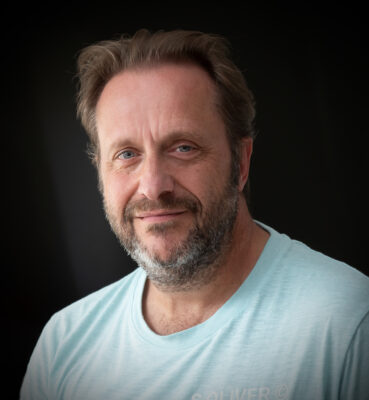Grondelaers, dr. S. (Stef)

Research group
Linguistics and Language VariationBiography
Stefan Grondelaers (b. 1966) is Researcher Linguistics and Language Variation at the Meertens Institute. He studied English and Linguistics at the universities of Brussels and Leuven. In 2000 he received his PhD in Leuven for a dissertation in which he showed that the er in the Dutch expression Er staat een paard in de gang does have a meaning, and that this small, tricky word can be used to demonstrate that Belgian and Netherlandic Dutch have a very different ‘syntactic engine’. In his current research Grondelaers is studying variation and change in Netherlandic, Belgian and Surinamese Dutch, mainly on the basis of experimental designs and corpus research using social-media data. Before taking up his position at the Meertens Institute, Grondelaers worked at the University of Leuven and Radboud University Nijmegen. Grondelaers’ work has an important valorisation dimension: over the past decade he has advised Taalunie (the Dutch Language Union) and the Belgian and Dutch public and regional broadcasters on how to deal with the challenge presented by a standard-language reality that has undergone and is undergoing significant change.
Key publications
- Grondelaers, Stefan, Roeland van Hout & Paul van Gent (2019). Re-evaluating the prestige of regional accents of Netherlandic Standard Dutch. The role of accent strength and speaker gender. Journal of Language and Social Psychology 38(2): 215-236.
- Grondelaers Stefan, Dirk Speelman, Chloé Lybaert & Paul van Gent (2020). Getting a (big) data-based grip on ideological change. Evidence from Belgian Dutch. Journal of Linguistic Geography 8(1).
- De Troij, Robbert, Stefan Grondelaers, Dirk Speelman & Antal van den Bosch (2021). Lexicon or grammar? Using memory-based learning to investigate the syntactic relationship between Belgian and Netherlandic Dutch. Natural Language Engineering 28(5), 649-667.
- Grondelaers, Stefan & Stefania Marzo (2023). Why does the shtyle spread? Street prestige boosts the diffusion of urban vernacular features. Language in Society 52(2), 295-320.
- Grondelaers, Stefan, Roeland van Hout, Hans van Halteren & Esther Veerbeek (2023). Why do we say them when we know it should be they? Twitter as a resource for investigating nonstandard syntactic variation in The Netherlands. Language Variation and Change 35(2), 223-245.
Publications
- contribution to journal (article)
- contribution to edited volume
- book (author)
- conference participation
- public engagement


